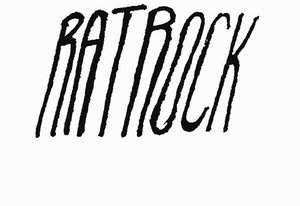On October 17th, Ratrock screened “In Our Own Words: On Being Trans at Smith”, a documentary which aims to explore the intricacies of trans college students navigating a traditionally women-centric university. The two-part event, hosted in the Sloate media center in Barnard’s Milstein library, was followed by a Q&A style panel of trans students and alumni from Columbia and Barnard. The Sloate media center, normally a production studio open to student-use by reservation, was transformed into a cozy theater for the purposes of the event. This lent itself to being a perfect space for thought-provoking film and intimate conversation, which felt fitting given the sensitivity of the subject matter and the personal nature of the interviews. Though many members of the audience had never previously met, there was a pervasive sense of community between guests. Attendees took their seats amongst greenscreens and production lights with Insomnia cookies, chatting amongst themselves in anticipation for the documentary until the door closed behind us, practically unnoticed.
Eventually, as the lights dimmed to signify the start of the event, guests settled into a quiet excitement. Sam Davis, director and former Smithie, stood up to provide context for his documentary. As he prefaced, “In Our Own Words” was created while Sam was studying for his undergraduate thesis. During his research it had quickly come to his attention that Smith’s archives contained meticulous documentation of women’s history dating back to the 1800’s… but not a single word on transgender individuals. The film aimed to rectify this shortcoming by providing a video-archive of trans experiences on Smith’s campus. With that, Sam took a seat just as his own joyous home-videos began to roll.
What unraveled was a nuanced discussion between trans people of various ages, socioeconomic backgrounds, and intersectional identities (though it is important to note that no trans women were featured due to professing self-concern or uneasiness). Since the project’s origins in 2016, nearly 40 current students and alumni have participated in interviews. Though ideas differed, for example some claimed to suffer more from hypervisibility on campus while others touched on feelings of invisibility, the film reached a general consensus was that Smith has failed young trans individuals while remaining accepting on paper. Smith College, as Sam suggests in his film, is dearly hanging onto their tagline, “women for the world” with little room for interpretation. As the event itself was hosted on Barnard’s campus, one of the oldest all-women colleges, an obvious parallel was created between Smith and Barnard which invited the audience to consider their own plight, or that of their neighbors.
Though one could easily assume that this sense of indeterminacy would translate into a frustrated tone, the documentary remained hopeful and spirited. Various times throughout the film, montages of transmasculine and non-binary students laughing or basking in sun provided uplifting visuals. Being transgender myself, I saw myself relfected in varying degrees within the wide-range of students reflected on film. As Aba Micha ‘16 asserts, “The ideal of Smith is to provide a learning environment for people who aren’t valued in traditional ideals of higher education and academia… And I think there’s a spirit of what Smith should be that doesn’t exclude trans people.” That is to say, the majority of these students are particularly frustrated exactly due to their loyalty and belief in Smith’s core message.
As the film wrapped up, panelists Aydan Shahd, Galen Hawkins, Spencer Douglas, and Sabina Jones gathered on stage to begin the Q&A portion of the event, moderated by Sam himself. Sam started by opening up the floor so that panelists could relate their general experiences on campus. Barnard senior Aydan noted the similarities between Columbia and Barnard policy from his perspective as an admissions representative, in particular pointing out that Barnard requires that applicants “must live an identity consistently as a woman”, which in itself is strangely ambiguous. Galen recounted their experiences struggling with feeling heard in class, Sabina commented on interactions with professors, and Spencer described their bittersweet feelings towards their time at Barnard. All in all, it appears that trans students from Columbia and Barnard, much like Smith students, held mixed feelings. Certainly, one can feel grateful for a space to explore their identity while also feeling frustrated with the lack of resources within that space to do so. Given that Columbia’s sole advocacy organization for transgender students, Genderev, has disbanded this year, this message appeared particularly important to consider moving forward.
As the event came to a close, Sam provided closing statements on his film, suggesting that we consider the next steps on our own, whatever they may be. As audience members began to funnel out of the room with their cookies, discussing the film or otherwise catching up with one another, it was inevitable that I began to reflect on my own experiences on campus. All in all, I too share mixed feelings about my time here. Though my perspective is certainly qualified by the fact that I am a cis-passing trans man who has had the fortune to medically transition before coming to Columbia, my standard for trans acceptance on campus has lowered over time as communities disperse. “In Our Own Words”, if anything, allowed for a moment of well-needed community building in the wake of Genderev’s disbandment. Small independent communities that value trans voices, like Ratrock itself, allow me to retain my belief that Columbia and Barnard’s spirits (and Smith’s, for that matter) aren’t in opposition to change in order to better meet the needs of trans students and communities.

